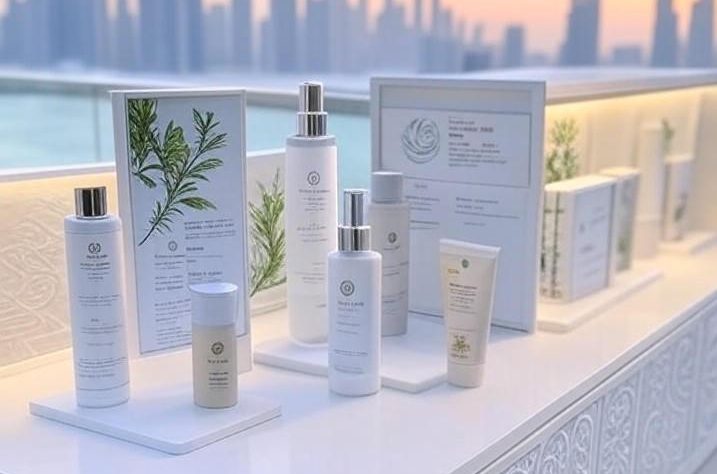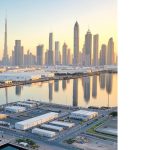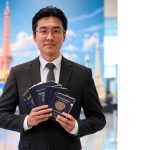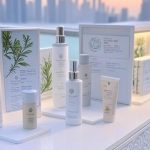Market Analysis and Opportunities
Dubai stands at the crossroads of commerce, luxury, and innovation, making it a prime location for launching a natural skincare product manufacturing business. The UAE’s personal care industry has experienced robust growth, driven by rising consumer awareness, a diverse population base, and increasing demand for clean, ethically sourced products. Businesses in Dubai benefit from access to a vibrant, affluent market with a strong appetite for high-quality and sustainable goods.
Target Market Analysis
Industry reports estimate the skincare market in the UAE to be worth over AED 2.5 billion, with skincare specifically accounting for approximately AED 800 million and forecasted to grow at a CAGR of 7-8% until 2028 (Statista, 2023). Dubai alone is a hub for premium brands and has a large expatriate population, contributing to diverse consumer preferences.
Key observations for the UAE market:
- Growing preference for organic, natural, and sustainable skincare products among residents and tourists.
- High per capita spending on personal care driven by brand-conscious and health-savvy consumers.
- Rising demand from Millennials and Gen Z—segments that value eco-friendliness, transparency, and local production.
- Increasing number of spas, salons, and wellness resorts seeking bespoke, natural product lines.
Emerging trends:
- Sustainability: Products with ethical sourcing and biodegradable packaging are highly favored.
- Digital Transformation: E-commerce sales of skincare products in the Middle East grew by over 20% year-on-year in 2022 (Euromonitor International, 2023).
- Customization: Consumers show interest in personalized skincare solutions tailored to unique skin types and climates.
Marketing Needs
The sector’s competitiveness underscores the importance of strategic marketing:
- Comprehensive market research to understand evolving local trends, consumer segments, and price positioning.
- Robust digital campaigns utilizing SEO, Pay-Per-Click (PPC), and targeted social media advertising. Native social influencers play a crucial role in building credibility and reach.
- Develop a compelling brand narrative that showcases sustainability, natural ingredients, and efficacy.
- Leverage local events, wellness expos, and partnerships with premium spas and wellness centers.
Expansion Potential
Dubai’s central location and business-friendly policies open doors for market entry into neighboring GCC countries and beyond:
- Scale up operations for B2B partnerships with hotels, spas, and retails chains.
- Diversify into export markets through Dubai’s world-class logistics infrastructure.
- Explore product extensions such as men’s grooming, wellness supplements, or baby care.
Free Zones such as Dubai CommerCity make cross-border e-commerce logistics highly efficient and cost-effective.
Comprehensive Business Overview
Natural skincare product manufacturing involves sourcing and processing botanical, mineral, and organic ingredients to create skin-friendly products free from harsh chemicals. The business model may encompass sourcing, R&D, production, white-label manufacturing, and direct or business-to-business distribution.
- Industry: Cosmetics and Personal Care Manufacturing
- Business Model: D2C (direct to consumer) via e-commerce and retail; B2B via partnerships with salons, spas, hotels, and retailers; white-label manufacturing for local and international brands.
- Target Audience: Urban residents (locals and expatriates), tourists, wellness professionals, premium hotels, and retailers seeking sustainable product lines.
- Operational Scope: End-to-end—from raw material procurement to packaging and distribution. Champions R&D for innovative, region-specific products (e.g., products suited for desert climates).
Mission: To deliver high-quality, sustainable, and effective natural skincare solutions that enhance consumer well-being.
Vision: To become the leading natural skincare manufacturer in the Gulf, known for sustainable innovation and trusted globally.
Core Objectives:
- Produce clean, safe, and effective skincare products tailored to Middle Eastern skin and climate.
- Champion environmentally friendly practices at every stage of production and packaging.
- Establish robust distribution channels across the UAE and target global expansion.
Business Stage & Location:
- Recommended Stage: Startup to early growth, given immense market opportunity.
- Location in Dubai: Preferably within a Dubai Free Zone such as Dubai Science Park or Dubai CommerCity for manufacturing, R&D, and export facilitation. These zones offer 100% foreign ownership, streamlined licensing, and simplified import/export processes.
Competitive Advantage
Unique Value Proposition (UVP) and Key Strengths
- Entrepreneur Perspective: High market demand for natural, locally produced skincare gives first-mover or niche-player advantages. Dubai’s tax incentives and Free Zone benefits lower barriers to entry and ongoing costs.
- Investor Perspective: Attractive ROI due to growing consumer demand, premium pricing, and potential for scaling regionally and globally. The sector’s alignment with sustainability mega-trends and “clean beauty” drives long-term relevance and exit options.
- Manager Perspective: Dubai’s advanced infrastructure, talent pool, and regulatory support enable efficient production, supply chain, and logistics. Strategic partnerships and exclusive ingredient sourcing (e.g., regional botanicals) can reinforce a sustainable supply chain and unique product positioning.
Examples:
- Proprietary Formulations: Investment in R&D can yield IP-protected, formulary technologies based on local botanicals (e.g., dates, oud, Arabian jasmine).
- Cost Efficiencies: Leveraging Dubai’s logistics network reduces shipping/ warehousing costs for both local and international markets.
- Exclusive Partnerships: Collaboration with eco-certifiers and local farms for organic certification confers brand credibility.
Financial and Investment Needs
Financial Requirements
Initial capital requirements for establishing a natural skincare product manufacturing business in Dubai typically range from AED 700,000 to AED 2,500,000, depending on scale and sophistication.
Typical cost breakdown:
- Company formation and licensing: AED 35,000 – 60,000 (covers Free Zone fees, legal documentation, and basic regulatory approvals).
- Facility setup (rental or lease): AED 150,000 – 500,000 annually.
- Production equipment and R&D: AED 250,000 – 900,000 (depending on automation and technology).
- Marketing and branding: AED 100,000 – 300,000 (digital campaigns, influencer partnerships, packaging).
- Initial staffing (permits, salaries): AED 120,000 – 400,000 annually based on team size.
- Raw materials and inventory: AED 100,000 – 200,000.
Investment Potential
Natural skincare product manufacturing in the UAE offers attractive potential for investors:
- Sector growth rates significantly outperform mature markets.
- High-margin specialty products—natural and organic lines—command premium pricing.
- Dubai Free Zones allow 100% repatriation of profits.
- Export potential via Dubai’s trade network opens scalable expansion opportunities.
Suitable investment models include:
- Equity investment (for early-stage startups and scale-ups).
- Venture capital partnerships for R&D-intensive product development.
- Corporate partnerships with wellness and hospitality industry leaders.
For tailored support on structuring or scaling investments in Dubai, consider consulting professionals with expertise in investment in UAE.
Financial Risks and Risk Mitigation
Main risks include:
- High upfront capital and working capital requirements.
- Market entry and brand competition from established international brands.
- Currency fluctuations (especially regarding imported raw materials).
Risk mitigation strategies:
- Diversified product lines and revenue channels (e.g., B2C, B2B, and export).
- Comprehensive product liability and business insurance coverage.
- Lock in supply contracts to reduce input volatility and invest in local supply chain development.
Human Resources and Recruitment
Workforce Needs
A successful operation in Dubai typically requires:
- Production and formulation experts: chemists, skincare specialists, quality assurance personnel.
- Sales and marketing professionals: with digital marketing capability and multicultural communication skills.
- Supply chain/logistics coordinators and administrative staff.
- Specialized roles: graphic designers (for packaging), regulatory affairs managers (compliance), business development executives.
A lean startup could begin with 8-15 full-time staff and utilize specialized consultants or agencies as needed.
HR Challenges and Solutions
Main HR issues involve high competition for skilled labor, cultural diversity, and evolving workplace expectations. To overcome these:
- Offer competitive compensation and innovative benefits (flexible schedules, professional development).
- Invest in regular training on industry updates, digital tools, and multicultural team building.
- Foster a positive, inclusive workplace culture that aligns with Dubai’s diverse talent pool.
Compliance with UAE Labor Laws
- All employees must have valid UAE residency visas, labor contracts, and coverage for end-of-service benefits.
- Companies must comply with WPS (Wages Protection System), workplace safety regulations, and mandated health insurance for all staff.
- Regular compliance checks and legal audits can help ensure alignment with labor law changes.
For further HR and compliance guidance, refer to residency requirements for business owners and employees in Dubai.
Infrastructure and Operations
Infrastructure Needs
Key infrastructure requirements include:
- State-of-the-art production facility compliant with Dubai Municipality and ESMA (Emirates Authority for Standardization & Metrology) standards.
- Cloud-based business management systems for order processing, inventory, and customer relationship management.
- Flexible co-working or Free Zone office spaces to minimize overhead and support hybrid work models.
- Advanced e-commerce platforms for direct sales and customer engagement.
Operational Optimization
Potential operational bottlenecks may arise in inventory management, order fulfillment, and regulatory compliance. Actionable solutions include:
- Implementing ERP (Enterprise Resource Planning) systems for real-time process integration.
- Adopting lean manufacturing methodologies to minimize waste.
- Partnering with experienced, local 3PLs (third-party logistics providers) for nimble, cost-efficient distribution.
Legal Compliance
A successful skincare business must ensure:
- Proper company registration with the Department of Economic Development (DED) for Mainland, or relevant Free Zone authority.
- Acquisition of manufacturing, import, and product safety permits from local regulators.
- Setup of compliant corporate bank accounts in the UAE.
- Adherence to intellectual property and trademark protections for branding and formulations.
For comprehensive business setup support, explore business formation services in Dubai.
Innovation and Technology
Technology is a differentiator in natural skincare manufacturing:
- Utilize AI-powered skin analysis for R&D and product customization.
- Implement QR-code traceability on packaging for transparency and brand storytelling.
- Digitize supply chain processes for efficiency and real-time risk management.
Such innovations support both regulatory compliance and market differentiation.
Marketing and Branding Strategies
Brand Status
Brand visibility and reputation are critical. Key checkpoints:
- Strong, consistent visual identity aligned with sustainability values and luxury positioning.
- Claims (e.g., “organic,” “chemical-free”) need certification and transparent marketing to build trust.
- Brand storytelling should highlight local roots, ethical practices, and proven efficacy.
Opportunities exist to strengthen presence through PR, partnerships, and community engagement.
Marketing Channels
Effective channels in the UAE include:
- Digital: SEO-optimized website, localized e-commerce, influencer partnerships, and targeted social media (Instagram, TikTok, Facebook).
- Traditional: Retail launches in premium shopping centers, spa and hotel collaborations, participation in beauty expos.
Optimization strategies:
- Allocate budget to Google and social media ads with Arabic and English creatives.
- Utilize e-commerce logistics partnerships for fast, reliable delivery.
For advanced digital marketing support, consider specialized sales and advertising services.
360-Degree Campaigns
Integrated campaigns can accelerate market entry and brand loyalty:
- Combine online channels (search, social, video) with offline pop-up events or workshops in luxury malls and resorts.
- Deploy email marketing with expert content (e.g., skincare tips for desert climates).
- Engage local media and beauty influencers for press launches and testimonials.
Multi-channel synergy increases ROI and long-term engagement.
Growth and Development Potential
Growth Strategies
Strategic opportunities include:
- Expanding into untapped product niches (dermatologist-recommended, children’s skincare, sun protection for harsh climates).
- Establishing distribution partnerships across GCC, leveraging Dubai’s logistics prowess.
- Negotiating supply contracts with spas, hotels, and wellness retreats for recurring B2B orders.
Leveraging expert networks such as Persian Horizon can accelerate market penetration and scale.
Networking and Alliances
Current and future success factors:
- Supplier relationships for unique, high-quality raw materials.
- Affiliate marketing partnerships with wellness platforms and health practitioners.
- Connections with Dubai government or Free Zone officials for streamlined regulatory navigation.
International Potential
Dubai’s globally connected infrastructure positions natural skincare brands for international trade:
- Export to Europe, Asia, and Africa through Jebel Ali Port and Dubai International Airport.
- Access international buyers at major Dubai trade shows.
- Leverage “Made in UAE” quality for premium branding abroad.
Sustainability and Innovation
Aligning with Vision 2030 goals:
- Invest in biodegradable, smart packaging and reduced-plastic alternatives.
- Explore renewable energy in manufacturing facilities.
- Prioritize cruelty-free testing and certifications.
Such initiatives resonate with both regulators and consumers.
Alignment with Dubai’s Market
Cultural Alignment
Dubai’s multicultural landscape demands:
- Brand narratives and product lines catering to diverse ethnicities and religious practices.
- Multi-language packaging (Arabic, English, and possibly Russian or Mandarin for tourists).
- Inclusion of ingredients historically valued in Middle Eastern skincare (e.g., henna, oud oil).
Feedback-driven product adaptation ensures higher resonance and loyalty.
Local Regulatory Compliance
Ensure the business adheres to:
- UAE’s commercial laws governed by the DED or Free Zones.
- UAE VAT registration (applicable to most businesses above AED 375,000 annual turnover).
- Import, labeling, and safety regulations administered by Dubai Municipality and ESMA.
Proactive compliance audits reduce operational risk.
Advantages of Dubai
The city’s business case is compelling due to:
- Tax-free environment on personal and corporate income in Free Zones.
- Central location for re-export to the GCC, Africa, and Asia.
- High consumer purchasing power and low tariff barriers for imports and exports.
Access to world-class infrastructure and government-driven innovation frameworks further support long-term growth.
Local Challenges and Solutions
Obstacles may include:
- Intense competition from established, multinational brands.
- High operational costs—especially rent and labor.
Mitigation:
- Differentiate through sustainable, regionally inspired product lines.
- Negotiate favorable rental terms in specialized Free Zones.
- Optimize labor with a hybrid staffing model of core staff plus outsourced roles.
Conclusion and Actionable Recommendations
Dubai’s natural skincare product manufacturing sector is ripe with opportunity, shaped by surging demand for ethical, sustainable solutions and enabled by world-class infrastructure, regulatory support, and cross-border trade potential. Success hinges on authentic brand differentiation, operational excellence, regulatory compliance, and strategic marketing.
For entrepreneurs, the market rewards innovation and sustainability. For investors, it offers strong ROI potential and scalability. For managers, Dubai’s networked ecosystem provides the operational resources and strategic guidance required for sustained growth.
To maximize your business’s chances of thriving in this competitive arena:
- Invest in R&D for bespoke, climate-adapted products.
- Adopt a 360-degree marketing strategy combining multi-channel reach with authentic storytelling.
- Leverage local and international networks for distribution and sourcing.
- Ensure meticulous regulatory compliance at every stage.
For comprehensive support—including market research, licensing, investment, recruitment, and growth consulting—explore Persian Horizon’s services for launching or scaling your business in the UAE.
Ready to establish or expand your natural skincare product manufacturing business in Dubai? Connect with Persian Horizon’s experts for a tailored strategy that ensures sustainable, profitable market entry and growth.










